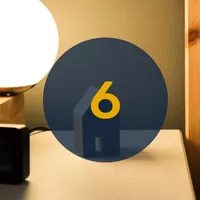Si Jane at Fred ay pagod sa gabi.
die|||||||
|Jane||||tired||night
Jane and Fred are tired at night.
Sila ay magkasama naghahapunan ng alas siyete.
||zusammen||||
They|are|together|having dinner|at|o'clock|seven
They eat dinner together at seven.
Ang anak nilang lalaki ay sumasabay sa kanilang maghapunan.
das|||||nimmt teil|||Abendessen
The|child|their|son|(linking verb)|eats together|with|their|dinner
Ihr Sohn gesellt sich zum Abendessen zu ihnen.
Their son eats dinner with them.
Nagpapahinga at nanunuod sila ng telebisyon ng magkasama.
ruhen||sehen|||||
They are resting|and|watching|they|(particle indicating action)|television||together
They relax and watch TV together.
他们一起放松并看电视。
Nanunuod din ng telebisyon ang anak nilang lalaki.
watches|also|(marker for direct object)|television|the|child|their|male
Their son watches TV, too.
Pinapatulog nila ang anak nilang lalaki ng alas otso.
legen||||||||
They put to sleep|their|the|child||son|at|eight|o'clock
They put their son to bed at eight.
Naligo sa mainit na tubig si Jane
hat gebadet||warmem||||
Jane bathed|in|hot|past tense marker|water||
Jane has a hot bath.
Naligo rin si Fred at nagsipilyo
|||||hat sich die Zähne geputzt
Bathed|also|(subject marker)|Fred|and|brushed his teeth
Fred has a shower and brushes his teeth.
Nagbasa ng libro si Jane pero nakatulog siya
||||||ist eingeschlafen|
She read|(marker for direct object)|book|(subject pronoun)|Jane|but|fell asleep|she
Jane reads a book, but falls asleep.
Si Fred ay mayamayang nakatulog na rin.
He|Fred|is|eventually|fell asleep|already|also
Fred also falls asleep soon after.
弗雷德也高兴地睡着了。
Narito ang parehong kuwento na sinabi sa ibang paraan.
Here|the|same|story|that|told|in|different|way
Here is the same story told in a different way.
Si Fred at ako ay pagod sa gabi
ich|||||||
He|Fred|and|I|am|tired|in|night
Fred and I are tired at night.
Magkasama kaming naghahapunan ng alas syete
Together|we|eat dinner|at|seven|seven
We eat dinner together at seven.
Ang anak naming lalaki ay sumasabay sa aming maghapunan
The|child|our|son|(linking verb)|eats with|at|our|dinner
Our son eats dinner with us.
Nagpapahinga kami at nanunuod ng telebisyon ng magkasama
We are resting|we|and|watching|(particle)|television|(particle)|together
We relax and watch TV together.
Nanunuod din ng telebisyon ang anak naming lalaki
watches|also|(marker for direct object)|television|the|child|our|son
Our son watches TV, too.
Pinapatulog namin ang anak naming lalaki ng alas otso
We put to sleep|our|the|child|our|son|at|eight|o'clock
We put our son to bed at eight.
Naligo ako ng mainit na tubig
I bathed|myself|with|hot|past tense marker|water
I have a hot bath.
Naligo rin si Fred at nagsipilyo
Bathed|also|(subject marker)|Fred|and|brushed his teeth
Fred has a shower and brushes his teeth.
Nagbasa ako ng libro pero nakatulog din
I read|I|a|book|but|fell asleep|also
I read a book, but fall asleep.
Si Fred ay mayamayang nakatulog na rin
He|Fred|is|eventually|fell asleep|already|also
Fred also falls asleep soon after.
Mga Tanong:
Fragen|
Questions|Question
Questions.
1- Si Fred at Jane ay pagod.
One: Fred and Jane are tired.
Pagod ba si Fred at Jane?
Are Fred and Jane tired?
Oo, pagod sila.
Yes|tired|they
Yes, they are tired.
2- Naghahapunan sila ng alas syete.
Two: They eat dinner at seven.
Naghahapunan ba sila ng alas sais?
They eat dinner|question particle|they|at|six|o'clock
Do they eat dinner at six?
Hindi, hindi sila naghahapunan ng alas sais.
No|not|they|eat dinner|at|six|six
No, they do not eat dinner at six.
Alas syete sila kumakain.
At|seven|they|eat
They eat at seven.
3- Meron silang anak na lalaki.
They have|their|child|that|son
Three: They have a son.
Meron ba silang anak na babae?
Do they have|question particle|they|child|(linker)|girl
Do they have a daughter?
Wala, wala silang anak na babae, pero meron silang anak na lalaki
None|none|they|child|particle|daughter|but|they have|they|child|particle|son
No, they do not have a daughter, they have a son.
4- Kasama nilang nanuod ng telebisyon ang anak nilang lalaki.
mit||||||||
Together with|their|watched|the|television|the|child|their|son
Four: Their son watches TV with them.
Nanunuod ba ng telebisyon ang anak nilang lalaki?
Does watch|question particle|(marker for direct object)|television|the|child|their|male son
Does their son watch TV?
Oo, kasama nilang nanunuod ang anak nilang lalaki
Yes|with|their|watching|the|child|their|son
Yes, their son watches TV with them.
5- Siya ay natutulog ng alas otso.
He|is|sleeps|at|eight|o'clock
Five: He goes to bed at eight.
Alas nuwebe ba natutulog ang anak nilang lalaki?
nine|nine|question particle|sleeps|the|child|their|male son
Does their son go to bed at nine?
Hindi, alas otso siya natutulog
No|around|eight|he|sleeps
No, he goes to bed at eight.
6- Si Jane ay naligo sa mainit na tubig.
She|Jane|(linking verb)|bathed|in|hot|(past tense marker)|water
Six: Jane has a hot bath.
Nag shower ba si Jane?
|shower|||
Does Jane have a shower?
Hindi, walang shower si Jane.
No|shower||Jane|
No, Jane doesn't have a shower.
Naligo siya sa mainit na tubig.
He/She bathed|he/she|in|hot|past tense marker|water
She has a hot bath.
7- Nag shower si Fred at nagsipilyo.
past tense marker|showered|pronoun for he|proper noun|and|brushed his teeth
Seven: Fred has a shower and brushes his teeth.
Nagsipilyo ba si Fred?
hat sich die Zähne geputzt|||
Brushed|question particle|(subject marker)|Fred
Does Fred brush his teeth?
Oo, si Fred ay nag shower at nagsipilyo
Yes|the|Fred|is|||and|brushed his teeth
Yes, Fred has a shower and brushes his teeth.
8- Nagbabasa ng libro si Jane.
reads|(particle)|book|(marker for proper nouns)|Jane
Eight: Jane reads a book.
Nagbabasa ba ng libro si Jane?
Reads|question particle|marker for direct object|book|(subject marker)|Jane
Does Jane read a book?
Oo, nagbabasa siya ng libro.
Yes|reads|he/she|(marker for direct object)|book
Yes, she reads a book.

